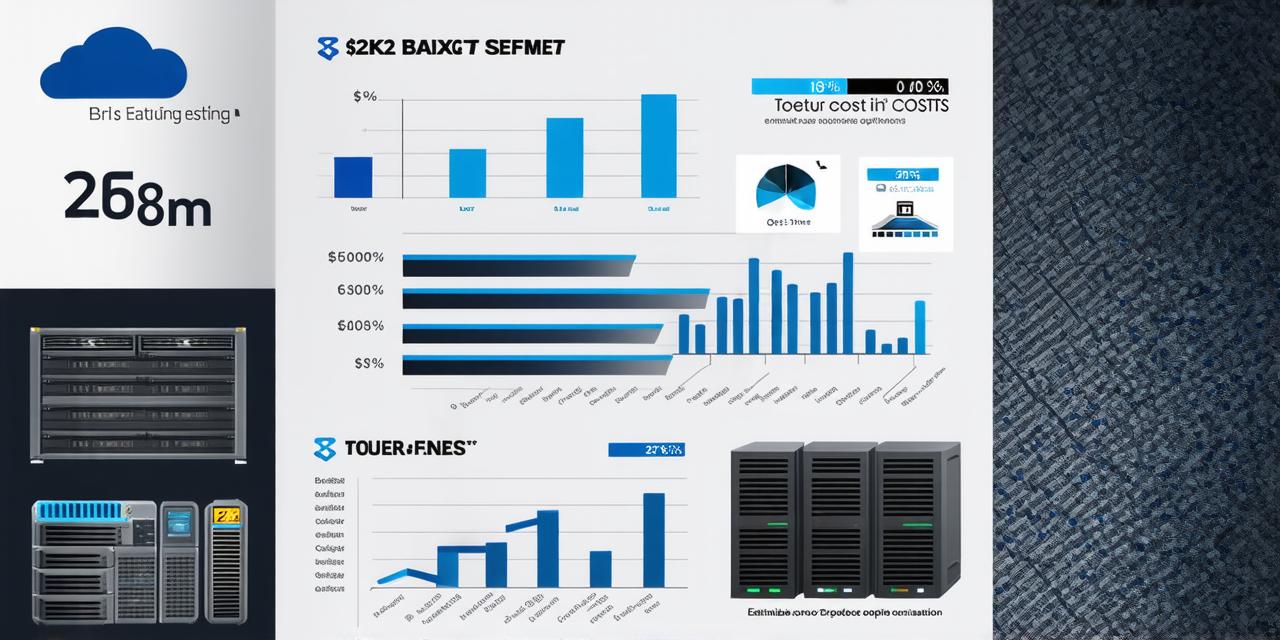Introduction
Cloud computing has revolutionized the way businesses operate by providing access to shared resources over the internet. Cloud hosting, specifically, allows developers to store and run applications in a remote data center managed by a third-party provider. However, like any other service, cloud hosting comes with costs that can vary significantly depending on usage patterns, storage requirements, and security measures.
Factors Affecting Cloud Hosting Costs
Usage Patterns
One of the most significant factors affecting cloud hosting costs is usage patterns. Different cloud hosting providers charge differently based on how much bandwidth, storage space, and computing power you consume. For example, some providers may charge per minute or hour of use, while others may charge per second. Additionally, some providers may offer usage-based pricing for specific services, such as data transfer or storage.
Case Study: A Startup’s Cloud Hosting Costs
Let’s take the example of a startup that develops an e-commerce platform for small businesses. The platform requires significant computing power, storage space, and bandwidth to handle a large number of users and transactions. Initially, the platform is expected to have about 500 concurrent users, generating 20 GB of data transfer per day.
Based on these usage patterns, the startup estimates that it will consume around 100 GB of storage space per month, with 50% of this being used for data transfer. To estimate the cost of cloud hosting for this platform, we need to consider different pricing models offered by cloud hosting providers.
Storage Requirements
Another factor affecting cloud hosting costs is storage requirements. Cloud hosting providers offer various types of storage options, including object storage, block storage, and file storage. Each type of storage has different pricing models based on the amount of storage space used, the duration of the storage, and the frequency of access.
Case Study: An Enterprise’s Cloud Hosting Costs
Let’s take the example of an enterprise that develops a financial management software for banks and other financial institutions. The software requires significant storage space to store large amounts of data, including customer records, transaction history, and compliance documentation. Additionally, the software needs to be highly available, with backup and disaster recovery services to ensure data integrity and availability in case of any unexpected events.
Security Measures
Security is a critical aspect of cloud hosting costs. Cloud hosting providers offer various security measures to protect your data and applications from threats such as cyber attacks, data breaches, and malware infections. These measures include firewalls, intrusion detection systems, encryption, and access control.
Factors Influencing Cloud Hosting Costs: A Comparison
Usage Patterns
vs.
Storage Requirements
vs.
Security Measures
Usage patterns, storage requirements, and security measures are the most significant factors affecting cloud hosting costs. However, their relative importance depends on the specific needs of your application and data.
Public Cloud vs. Private Cloud vs. Hybrid Cloud
Public cloud, private cloud, and hybrid cloud are different deployment models for cloud hosting services. Public cloud is a multi-tenant infrastructure where multiple customers share the same resources, while private cloud is a single-tenant infrastructure where a customer has exclusive access to its own resources. Hybrid cloud combines both public and private cloud infrastructure to provide a flexible and scalable solution.
Factors Influencing Cloud Hosting Costs: Best Practices
To optimize your cloud hosting costs, here are some best practices to consider:
Monitor Your
Usage Patterns
Optimize Your
Storage Requirements
Implement Advanced
Security Measures
Choose the Right Deployment Model
Conclusion
Cloud hosting costs can vary significantly based on various factors such as usage patterns, storage requirements, and security measures. To optimize your cloud hosting costs, it’s essential to have a clear understanding of these factors and their relative importance. By monitoring your usage patterns, optimizing your storage requirements, implementing advanced security measures, and choosing the right deployment model, you can significantly reduce your cloud hosting costs while ensuring high availability, scalability, and security for your applications and data.



